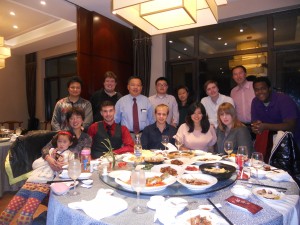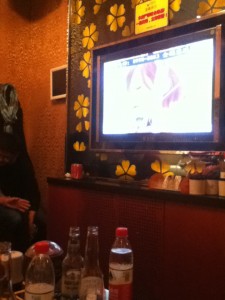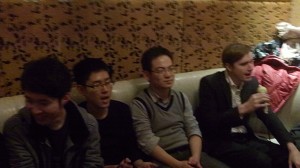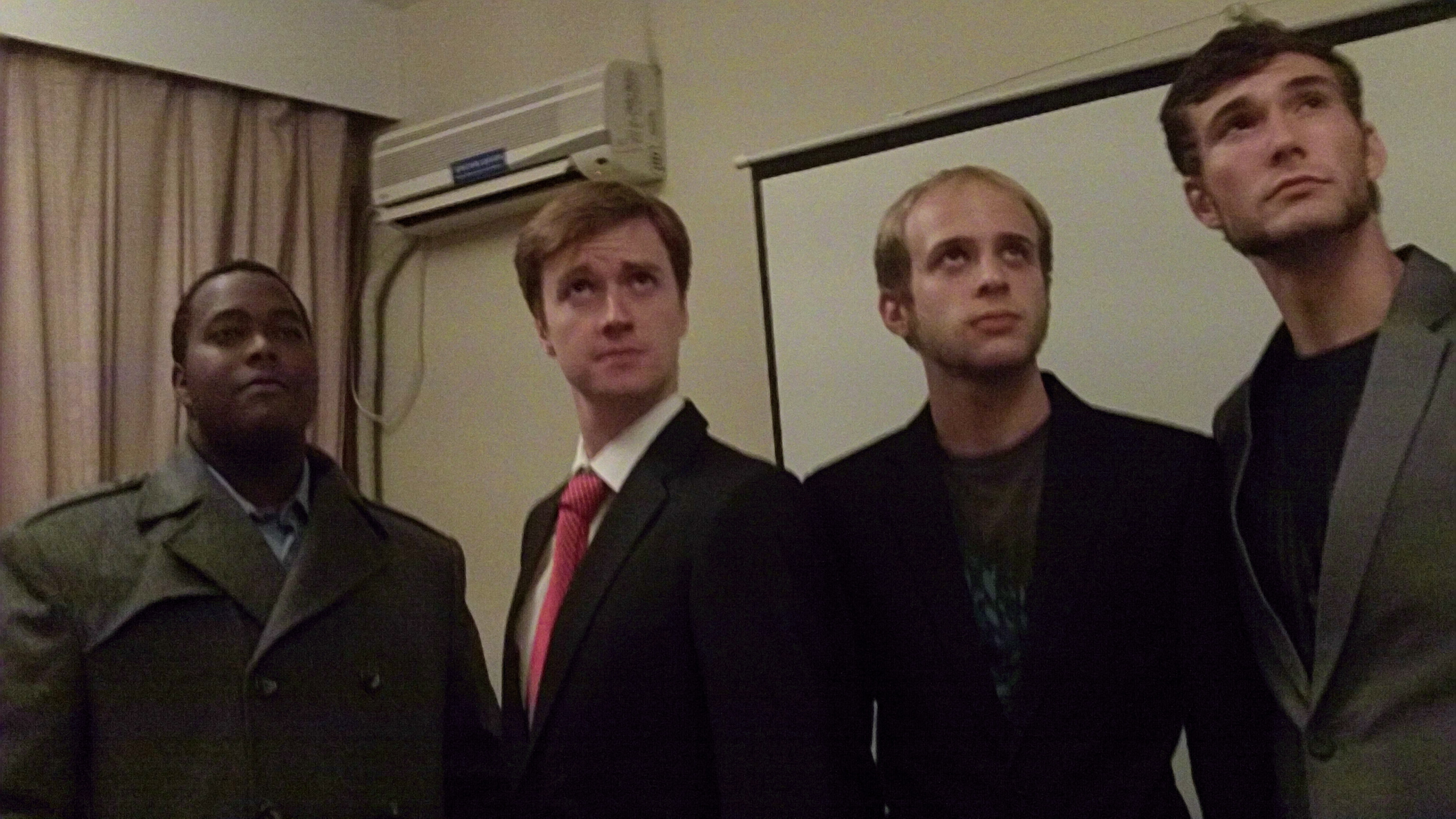“你好 from Hangzhou!
(Sorry for the lateness of this update – I took off for a flight to Hong Kong the day after we returned from the Xi’an trip, and have been recovering during these past few days from the excitement. :))
Much too early on the 27th of September, Professor Lin (and his wife, who arrived in Hangzhou a few days prior) ushered fifteen sleepy Valparaiso, Luther, and Roanoke students into a bus to the airport as we began our journey to former Chinese dynastic capital Xi’an. (Xi’an or 西安 translates to “Western Peace,” which if I remember correctly had something to do the hope that a peaceful name would lead to fewer wars.)
After a one hour bus ride, two hour plane ride, lunch at our hotel, and some sorely-needed naptime, we spent the afternoon at the Xi’an History Museum and the surrounding area of the Big Wild Goose Pagoda. I’ll be the first to admit that history is not my favorite subject. Being quite tired and going to a city with a history of 3,000+ years (*and* having to retell the adventure) was a little bit frightening. But, you really do have to be impressed when you consider the intrinsic willpower of a city (and culture) that could persist for so long.
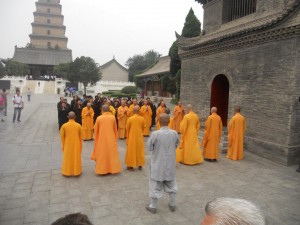
Monks outside of a pagoda in Xi'an (photo credit to Mickey Suber of H-23)
The museum was divided up by the different dynasties that ruled the ancient Chinese capital. There were some really impressive exhibits there, such as a reproduction of the 500,000+ year old skull fossil of ‘the Lantian man.’ Other exhibits, including statues of Buddha, models of homes, and ancient writing, gave insight to life in those eras.
Afterwards, we headed towards the Big Wild Goose Pagoda, aptly named after a goose whose spontaneous death at the site of the pagoda inspired an ancient branch of Buddhism to stop eating meat, or so the legend says.
It is one of the oldest pagodas still in existence, as it was built during the Tang dynasty soon after they started experimenting with materials besides wood (which was prone to rotting) with which to build pagodas. Built and rebuilt several times, and surviving an enormous earthquake that took off its top three stories, it currently stands at seven stories, or 210 feet. Like most other pagodas, it was used to house ancient Buddhist artifacts, and specifically held sutras brought back by famous monk Xuanzang who traveled the Silk Road to learn more about Buddhism from India. (As you may be able to tell, this was my presentation topic during the trip.)
We spent the evening around the significantly more modernized area near the pagoda. Many were gathered around an enormous fountain in front of the pagoda, while others milled around looking at the various statues of
important figures in the history of Xi’an. Several street artists were entertaining passerby. Further away was the mall-like complex where we got dinner with a ceiling that projected random nature imagery, among other things. Needless to say, the general atmosphere was much livelier than I expected in this area.
The next day was probably the highlight of the trip for me, as we got to see the famous Terracotta Warriors – one of a select few history tales that has interested me for quite some time. Long story short, these warriors were commissioned by Emperor Qin in the 200s B.C. to protect him in the afterlife. However, as I understand it, their creation and the location of his tomb was a huge secret – basically a legend before it was actually discovered in the 1970s.
There are three chambers of thousands of soldiers and horses, with the biggest having 6000+ soldiers. They are just as incredible as you can imagine. Still, there is much left to uncover – including the Emperor’s burial chamber. Even though they know where it is, there are concerns about opening it because of its age and even the possibility that it’s booby-trapped. (Yes — Indiana Jones style.)
After lunch, we saw the Muslim Quarter and the Great Mosque. Interestingly, though unsurprisingly, the mosque area is distinctly Chinese in architectural style, rather than Middle Eastern. As it is still a place of worship for the Hui Chinese Muslims, there were parts of the mosque that could not be entered.
Outside the tranquility of the mosque, however, was the bustling Muslim quarter full of cheap clothes, cheap souvenirs, cheap food and some of the most aggressive shopkeepers that you will ever meet. Those who dare look at anything for more than a few seconds will be bombarded with greetings, asking “what do you like?!” Occasionally, they may make it difficult for you to leave. Though it was not terribly different from other bargaining markets in China, it was still a lot of fun. (It’s the area that many of us ended up visiting during our free time the next day before the flight home.)
So, these are the highlights of our Xi’an trip! Our next big trip is Beijing, but I’m sure someone will
write soon about our in-between adventures. 再见!
Best, Michele” -Michele
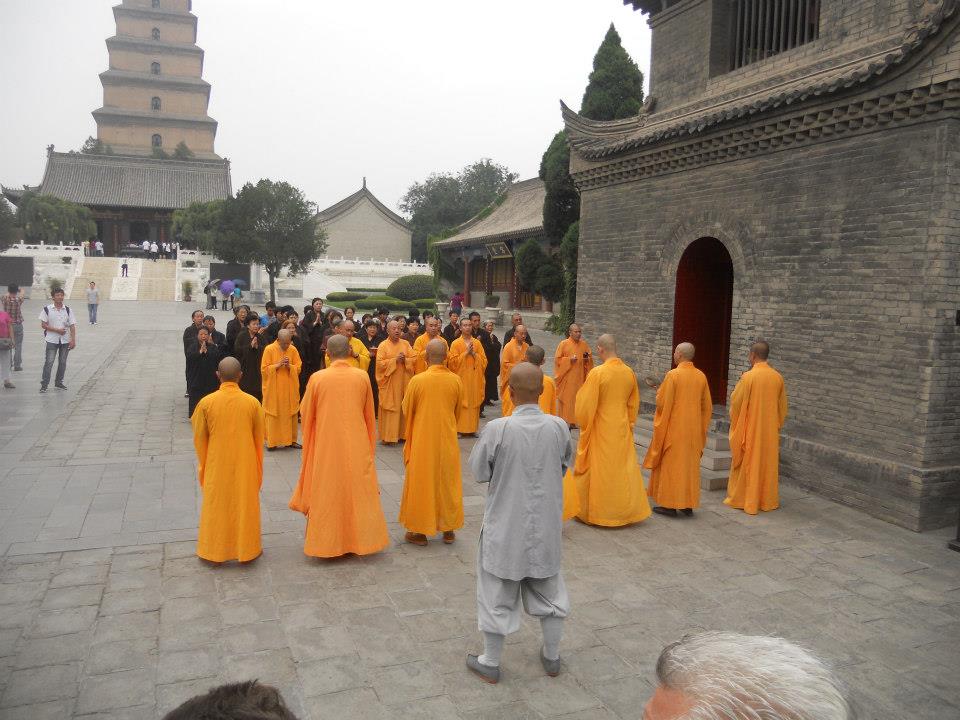

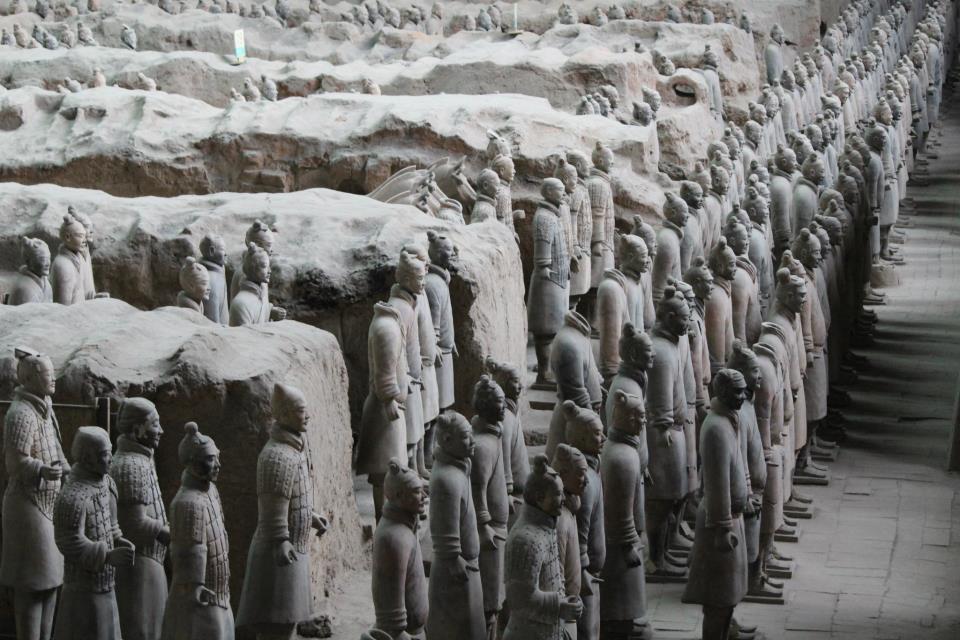
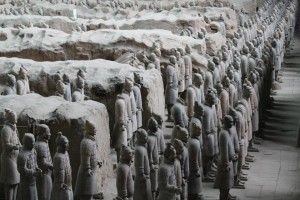
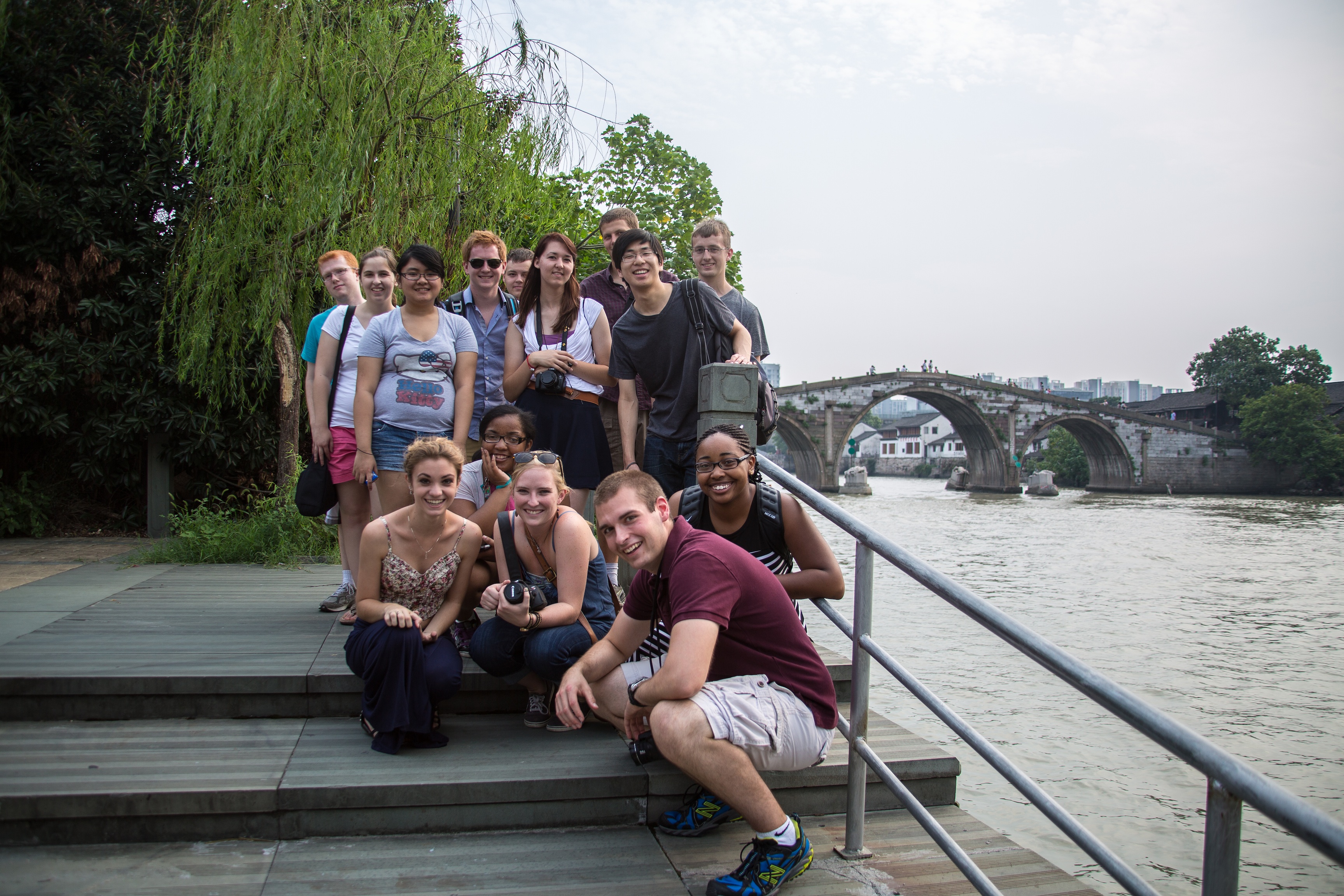
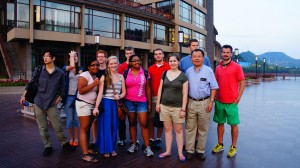
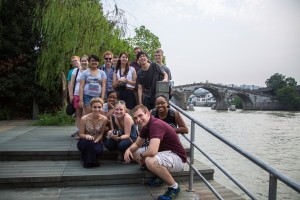
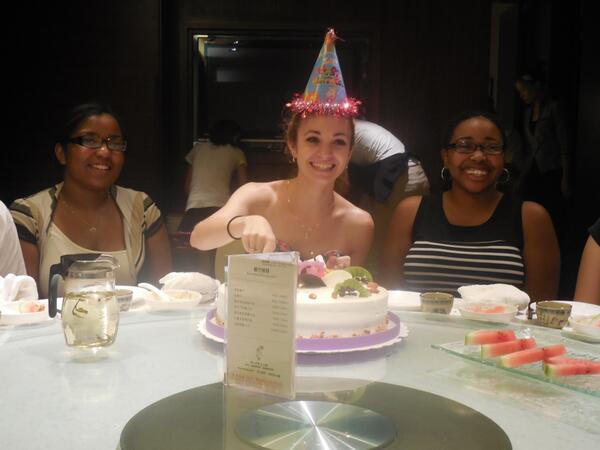
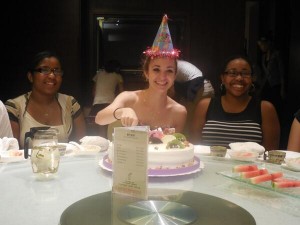
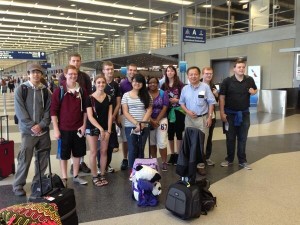
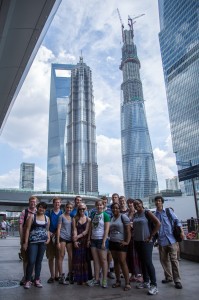
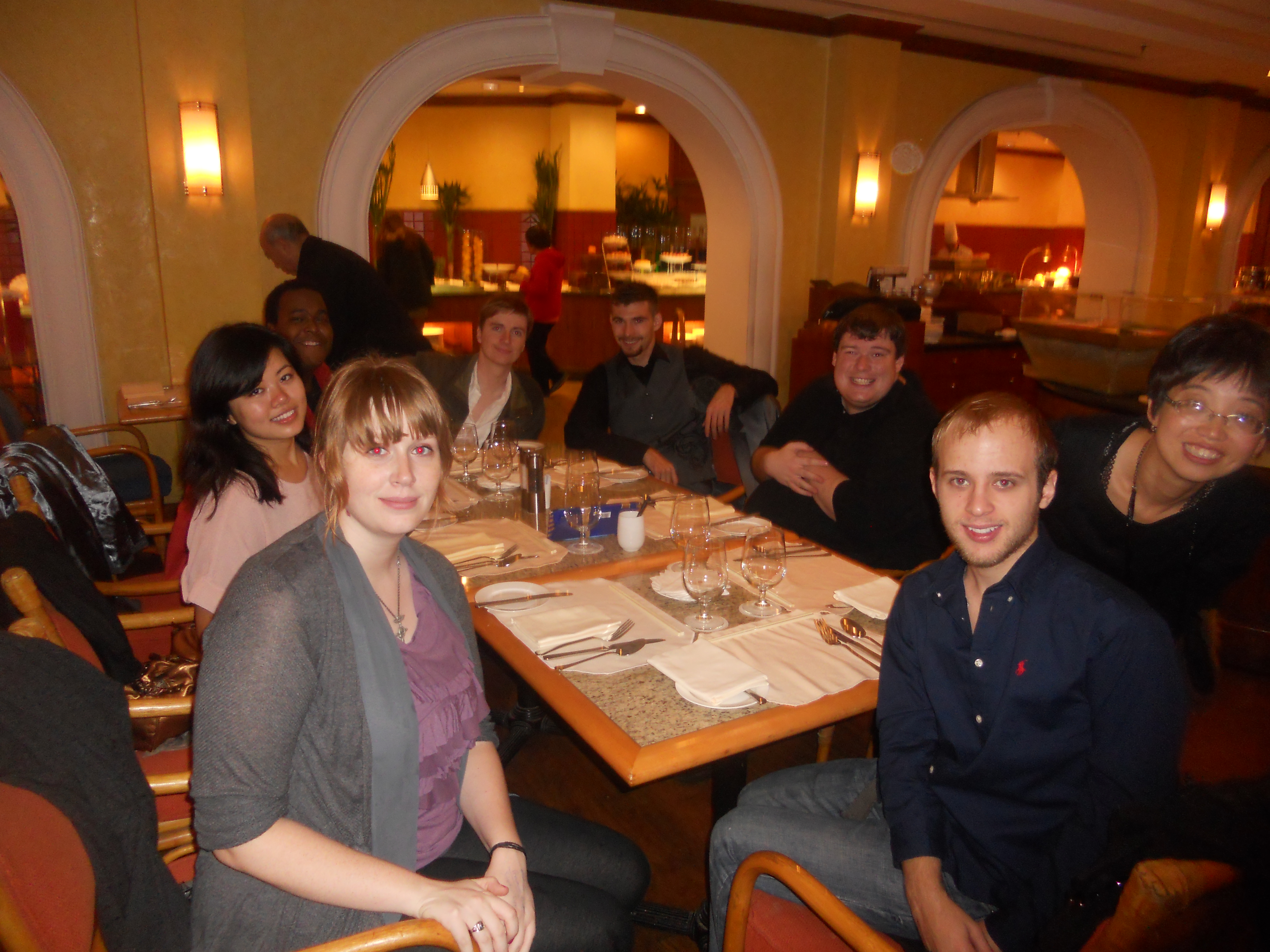
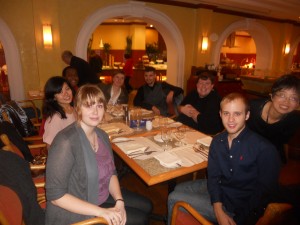
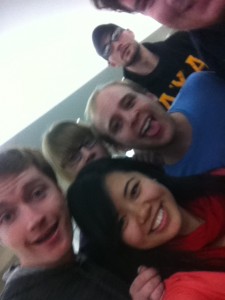
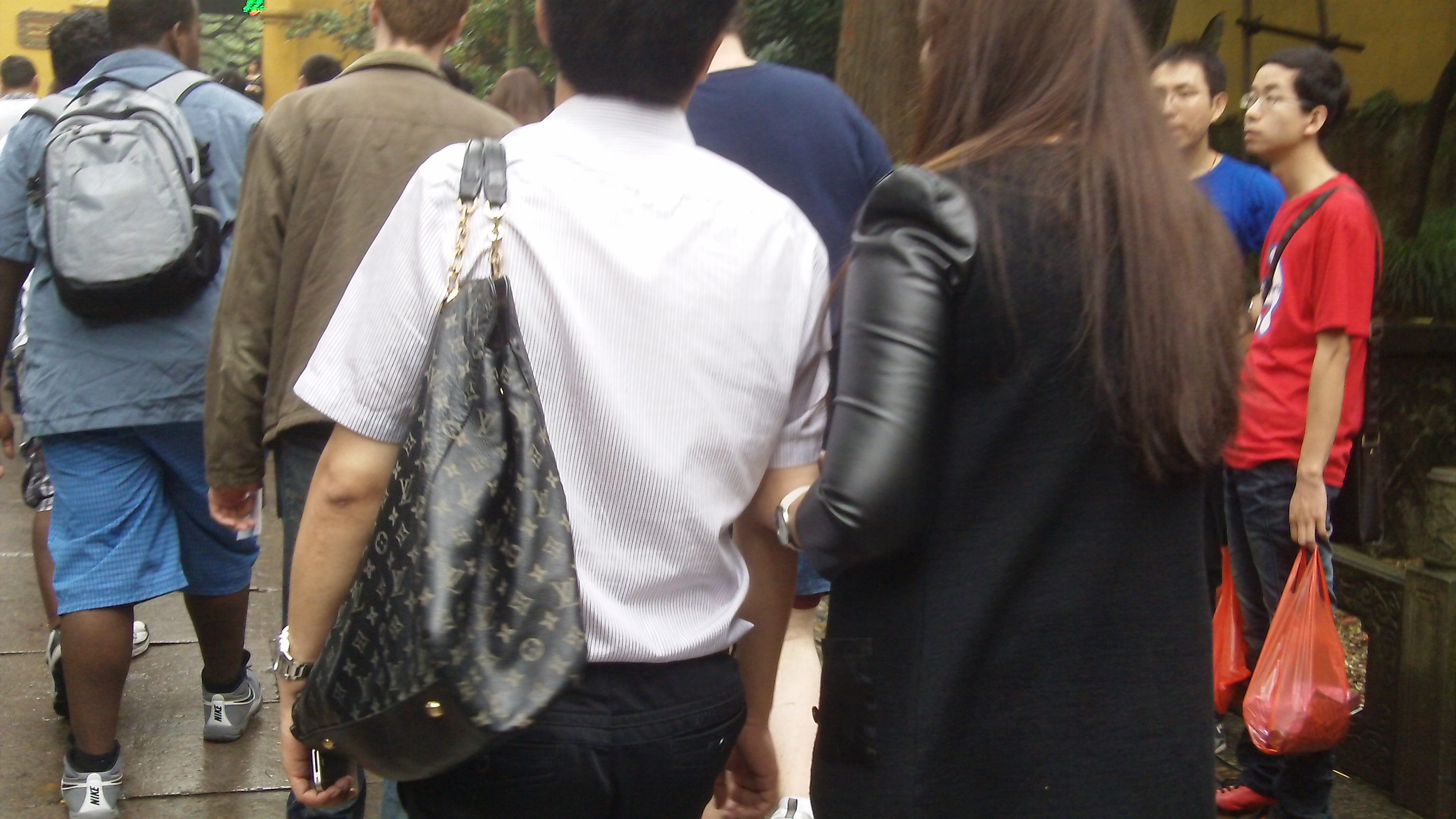
 Something that has really surprised me about China is the importance of “face”. No, not just your physical face—the Chinese mind sees face as sort of how a person is represented to other people. It is how other people basically see you. This idea of “face” is very important in Chinese culture, and it really helps you understand some of the things you will see if you travel around to any city. For example, one of the big things we have noticed here is the obsession with brand name items. There is definitely a preference for brand name items, whether be Louis Vuitton bags or Apple phones. And here in Hangzhou, BMW cars litter the streets everywhere. In fact, there’s an infamous scene from a reality dating show here in China where one female contestant stated to an unemployed suitor that when it comes to money and happiness, she would prefer to cry in a BMW than laugh riding on a bicycle.
Something that has really surprised me about China is the importance of “face”. No, not just your physical face—the Chinese mind sees face as sort of how a person is represented to other people. It is how other people basically see you. This idea of “face” is very important in Chinese culture, and it really helps you understand some of the things you will see if you travel around to any city. For example, one of the big things we have noticed here is the obsession with brand name items. There is definitely a preference for brand name items, whether be Louis Vuitton bags or Apple phones. And here in Hangzhou, BMW cars litter the streets everywhere. In fact, there’s an infamous scene from a reality dating show here in China where one female contestant stated to an unemployed suitor that when it comes to money and happiness, she would prefer to cry in a BMW than laugh riding on a bicycle.